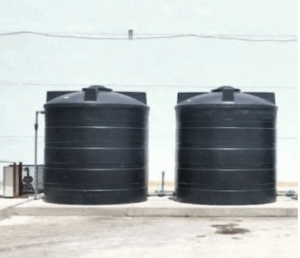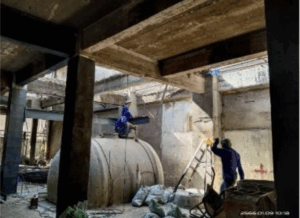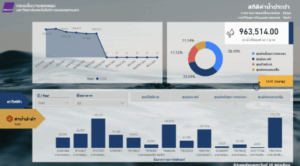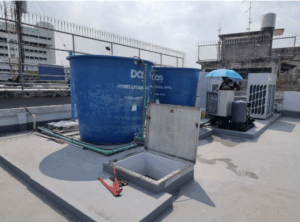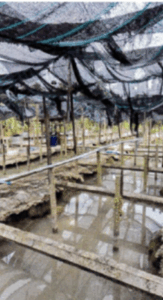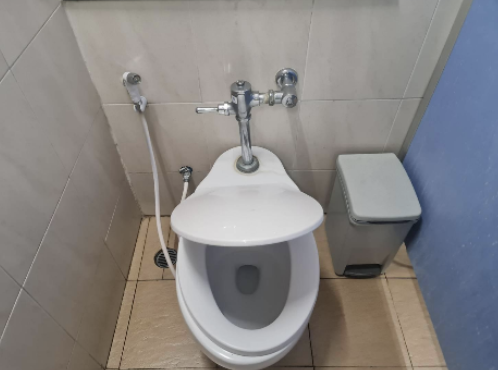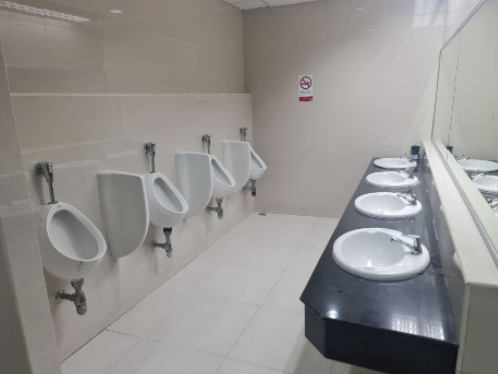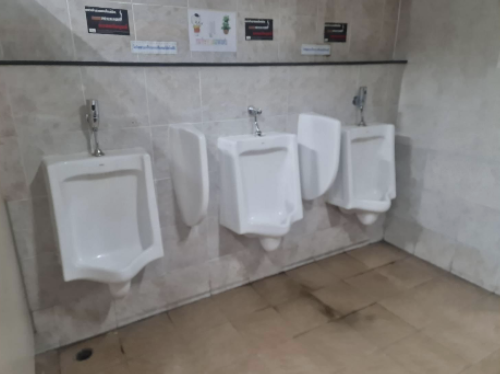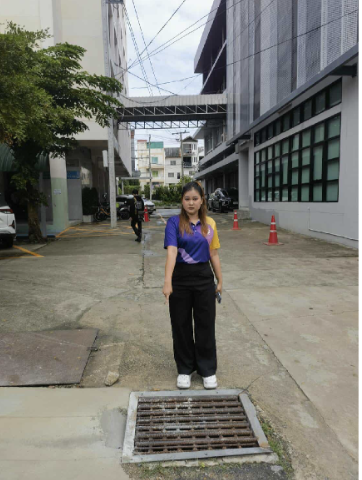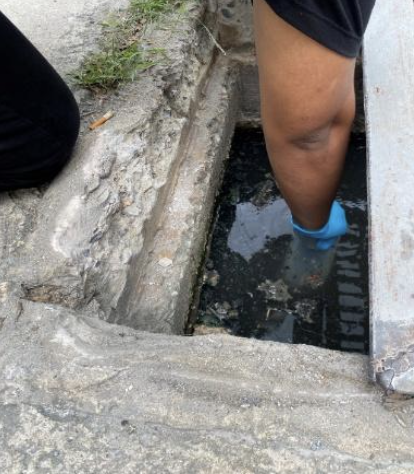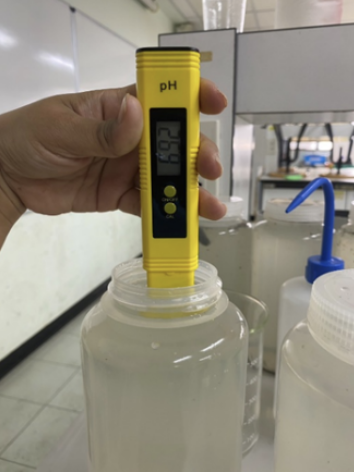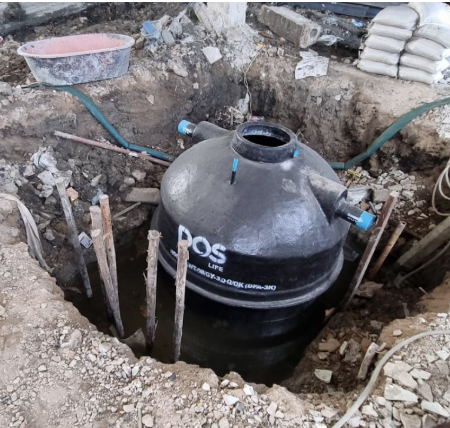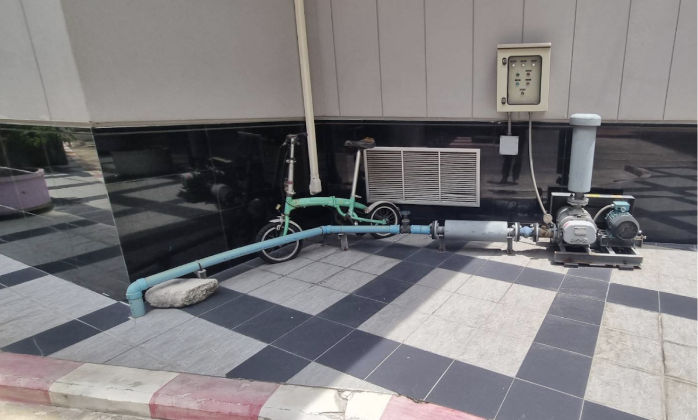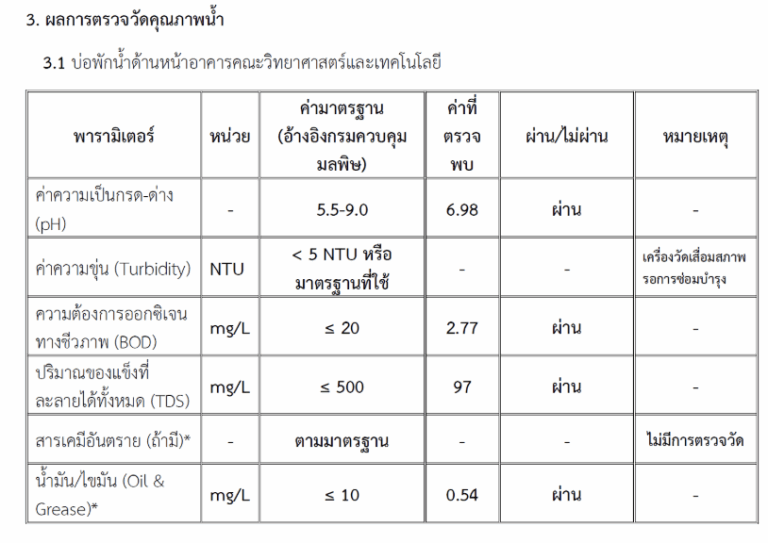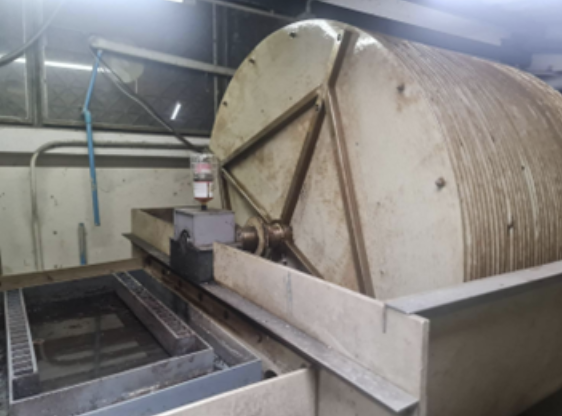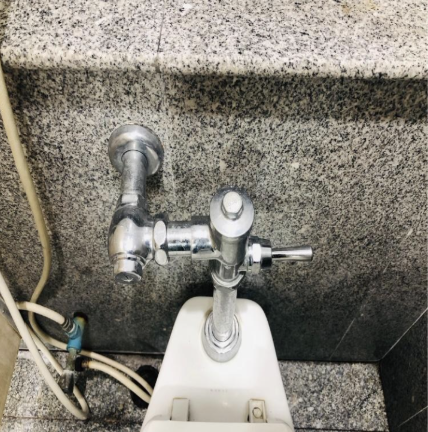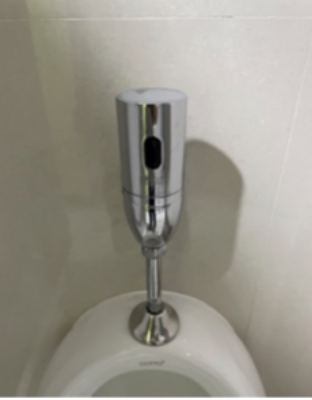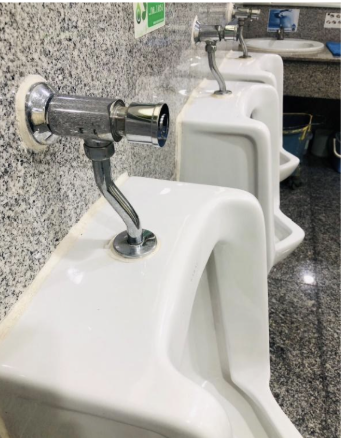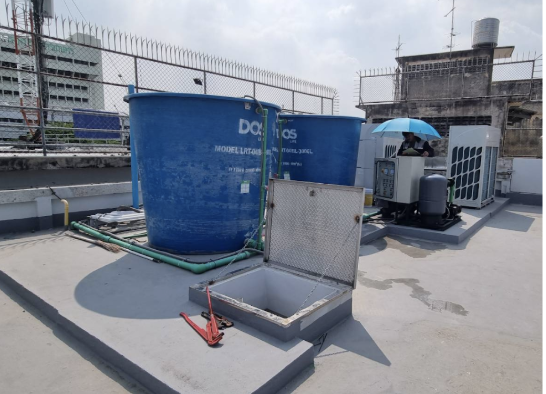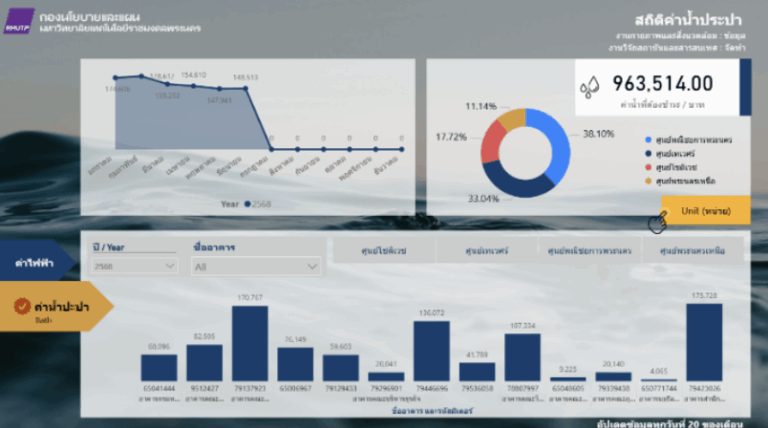Water (WR)
Table of contents
Water conservation program and implementation
Description:
Rajamangala University of Technology Phra Nakhon (RMUTP) has systematically planned, implemented, monitored, and evaluated all water management programs across all campuses. Each program is carried out in an organized manner with the aim of conserving more than 50% of water usage through various methods.
To ensure effective implementation and transparency, water usage statistics—particularly monthly water bill data—are collected and analyzed. This facilitates monitoring and promotes data-driven decision-making.
Rajamangala University of Technology Phra Nakhon (RMUTP) has adopted a comprehensive water conservation policy to promote sustainable practices across all campuses. This policy mandates that every newly constructed or renovated building must incorporate rainwater harvesting systems and backup water storage tanks. These systems are intended to optimize water use efficiency and reduce dependence on municipal or external water supplies.
In parallel, RMUTP also utilizes natural water sources, such as nearby rivers and canals, for irrigation purposes, particularly at the North Bangkok and Chom Thong campuses. This approach supports the long-term maintenance of campus green spaces while conserving treated water for essential uses.
Water Recycling Program Implementation (WR.2)
Based on our location, Rajamangala University of Technology Phra Nakhon does not focus on water recycling.
Additional evidence link (i.e., for videos, more images, or other files that are not included in this file):
https://green.rmutp.ac.th/wr-f/wr-1/
Water Efficient Appliances Usage (e.g. hand washing taps, toilet flush, etc.)
Water efficient appliances include automatic on/off and auto-stop pushing flushers and taps.
| Appliance | Total Number | Total number water Efficient appliances | Percentage |
| Toilet flushers | 554 | 474 | 86% |
| Urinal flushers | 617 | 480 | 78% |
| Washbasin taps | 938 | 780 | 83% |
| Average Percentage | 82% |
Rajamangala University of Technology Phra Nakhon (RMUTP) has systematically implemented planning, execution, monitoring, and evaluation processes for water efficiency improvement projects across all campuses. A major focus has been the replacement of traditional water-consuming appliances with water-saving alternatives, aiming to reduce monthly water expenses and promote sustainable practices university-wide.
- More than 80% of water-related appliances across campuses have been upgraded to water-saving models.
- Examples of water-saving technologies include:
- Automatic or sensor-based faucets for handwashing stations.
- High-efficiency flushing systems for toilets and urinals.
- Monitoring and Evaluation:
- Monthly water usage and costs are recorded and reviewed regularly to evaluate the effectiveness of the installed appliances.
- The system provides easy access to usage statistics, allowing for transparent tracking and reporting.
In alignment with university sustainability goals, RMUTP mandates that all new buildings and renovations must incorporate water-saving features as standard design requirements.
Additional evidence link (i.e., for videos, more images, or other files that are not included in this file):
https://green.rmutp.ac.th/sustainability-report/
Consumption of treated water (WR.4)
Description:
Rajamangala University of Technology Phra Nakhon does not implement any water treatment system.
Additional evidence link (i.e., for videos, more images, or other files that are not included in this file):
https://green.rmutp.ac.th/sustainability-report/
Water pollution control in campus area (WR.5)
Description:
Rajamangala University of Technology Phra Nakhon (RMUTP) has fully implemented water pollution control policies and programs across all campuses to prevent contaminated water from entering the university’s water system. This includes comprehensive control of stormwater runoff, laboratory wastewater containing hazardous chemicals, and drainage systems impacted by pollutants such as oil and grease from parking lots.
Water pollution prevention measures are incorporated in all new building constructions and renovation projects, as required by university policy. The water quality is regularly monitored by the Faculty of Science and Technology, focusing on physical, chemical, and biological parameters. Monitoring covers strategic areas and is supported by consistent data analysis and reporting to ensure environmental safety and compliance.
Additional evidence link (i.e., for videos, more images, or other files that are not included in this file):
https://green.rmutp.ac.th/sustainability-report/
Planning, implementation, monitoring and/or evaluation of all programs related to Water Management through the utilization of Information and Communication Technology (ICT)
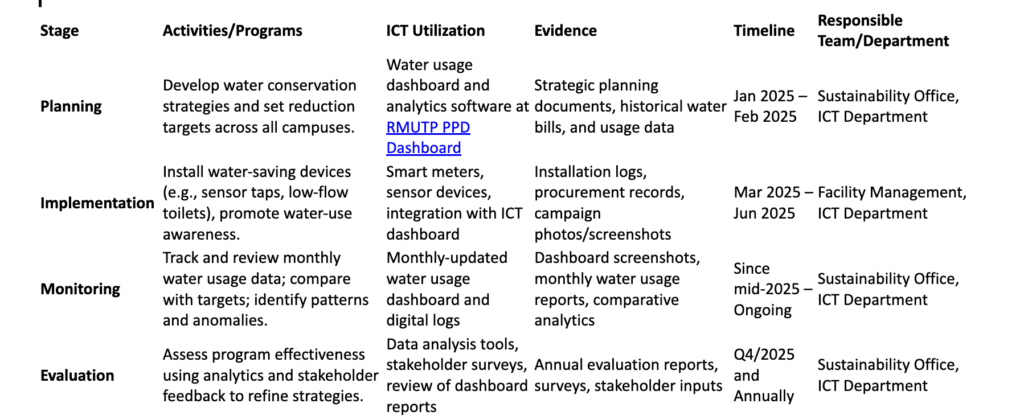
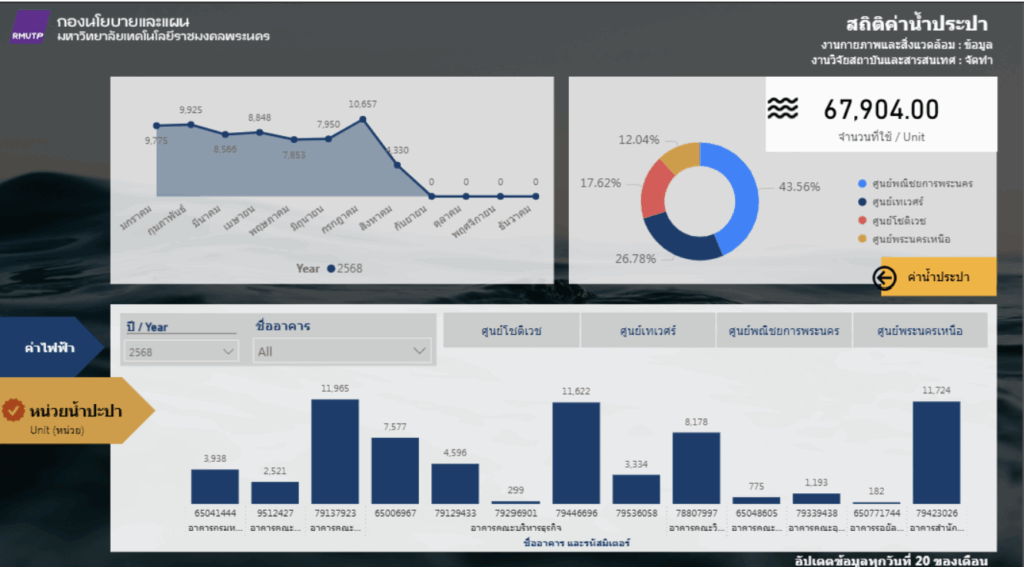
Description:
Rajamangala University of Technology Phra Nakhon (RMUTP) has fully implemented an ICT-based water management system that integrates planning, implementation, monitoring, evaluation, and ongoing revisions to ensure sustainable water use across all campuses.
- Planning Phase: RMUTP developed a strategic water conservation framework, set quantitative usage targets, and identified key performance indicators based on baseline consumption data.
- Implementation Phase: The university installed water-saving technologies and devices (e.g., automatic sensor faucets, dual-flush toilets, rainwater harvesting tanks) and integrated them with smart meters and water usage analytics software to track performance in real time.
- Monitoring Phase: A centralized Water Usage Dashboard has been developed and made publicly accessible at https://ppd.offpre.rmutp.ac.th/dashbord-ppd-02/. This dashboard visualizes monthly water consumption, comparisons across departments and campuses, and identifies areas for further improvement.
- Evaluation Phase: Data from the system is analyzed and reviewed regularly by the Sustainability Office and the ICT Department to assess effectiveness. Feedback from departments is collected, and results are published in annual sustainability reports.
- Revision: Insights from the monitoring and evaluation stages are used to update strategies, adjust system parameters, and continuously improve the effectiveness of water-saving initiatives and technologies across RMUTP campuses.
Additional evidence link (i.e., for videos, more images, or other files that are not included in this file):
https://green.rmutp.ac.th/sustainability-report/
Impact of Water Management programs in supporting the Sustainable Development Goals (SDGs)
Description:
Rajamangala University of Technology Phra Nakhon (RMUTP) has implemented comprehensive water management initiatives aligned with multiple SDGs. These programs combine infrastructure upgrades, behavioral change campaigns, and digital monitoring tools, demonstrating a strong institutional commitment to sustainable water use, conservation, and pollution control.
SDG 6: Clean Water and Sanitation
- RMUTP installs water-saving fixtures (e.g., sensor taps, low-flow toilets) across campuses, achieving >80% coverage.
- Monthly monitoring dashboard (https://ppd.offpre.rmutp.ac.th/dashbord-ppd-02) enhances transparency and data-driven water conservation.
SDG 9: Industry, Innovation, and Infrastructure
- Smart infrastructure integrates ICT systems for water tracking and analysis.
- Facilities are equipped with digital water meters to capture usage patterns for sustainable planning.
SDG 11: Sustainable Cities and Communities
- Campus design includes stormwater management systems and flood mitigation planning.
- New and renovated buildings must comply with university policies on water efficiency and pollution control.
SDG 12: Responsible Consumption and Production
- Reduces campus-wide water consumption through awareness campaigns and usage targets.
- Promotes behavioral changes among staff and students to conserve water.
SDG 13: Climate Action
- Reducing water waste contributes to overall resource efficiency and climate resilience of campus operations.
Additional evidence link (i.e., for videos, more images, or other files that are not included in this file):
https://green.rmutp.ac.th/sustainability-report/

